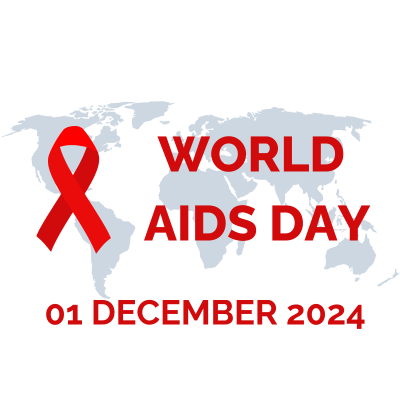World AIDS Day: Data-driven solutions to end HIV in sub-Saharan Africa
SACEMA Director, Prof Frank Tanser has dedicated over 25 years to understanding and combating the HIV epidemic in sub-Saharan Africa. As the Director of Population Health Innovation at Centre for Epidemic Response and Innovation (CERI), Prof Tanser leads efforts to design future HIV prevention strategies for severely affected rural communities.
Key contributions:
- Geospatial epidemiology: Prof Tanser’s innovative use of geospatial analysis has provided deep insights into HIV transmission patterns, enabling targeted interventions in high-risk areas.
- Impact of antiretroviral therapy (ART): His studies have demonstrated the effectiveness of nurse-led, decentralized ART programs in reducing HIV transmission at the population level.
In 2023, Prof Tanser secured a R40 million grant from the U.S. National Institutes of Health to study the changing dynamics of HIV in the era of COVID-19 and develop targeted intervention strategies.
Prof Frank Tanser’s research spotlight at CERI-SACEMA Research Days 2024
At the recent CERI-SACEMA Research Days 2024, Prof Tanser shared insights on the evolving dynamics of the HIV epidemic in rural KwaZulu-Natal, South Africa, and Eastern Zimbabwe.
Drawing from longitudinal data collected over decades, the study used advanced epidemiological modelling to assess trends in HIV incidence, treatment uptake, and viral suppression. These insights were critical for evaluating the effectiveness of current prevention strategies and shaping future interventions.
His work emphasized two critical areas:
- Impact of geographic and social determinants: Geospatial analysis revealed stark differences in HIV outcomes based on location, socio-economic status, and access to healthcare services.
- Emerging vulnerable groups: Shifts in the HIV epidemic, driven by factors such as the rollout of dolutegravir-based antiretroviral regimens and post-COVID-19 health system disruptions, are creating new vulnerable populations. These include younger men and those in remote rural areas who remain underserved by existing health programs.
A new report by UNAIDS underscores how structural factors – such as geographic isolation, socio-economic disadvantages, and health system disruptions – exacerbate vulnerability. Prof Tanser’s research captures these realities, particularly the lingering impact of post-COVID-19 disruptions, which have disproportionately affected marginalized populations.
“My health, my right”
Prof Tanser emphasized that one-size-fits-all approaches are insufficient in rural Africa, urging for data-driven, locally adapted solutions to maintain progress toward epidemic control. His research underscores the need to empower individuals, especially younger men and rural populations – with access to effective treatment, prevention, and support services.
By aligning advanced data analytics and modelling tools with global priorities, Prof Frank Tanser’s work continues to serve as a blueprint for us to achieve ambitious UNAIDS targets. As we commemorate World AIDS Day, we invite you to explore his most recent publications.
Recent publications:
- Kim, HY; Inghels, M; Mathenjwa, T; et al.(2024) Effect of a male-targeted digital decision support application aimed at increasing linkage to HIV care among men: Findings from the HITS cluster randomized clinical trial in rural South Africa. AIDS Behavior. https://doi.org/10.1007/s10461-024-04465-1.
- Gounder, L; Tomita, A; Lessells, R; Moodley, S; Francois, K-L; Khan, A; et al. (2024) Geospatial and temporal mapping of detectable HIV-1 viral loads amid dolutegravir rollout in KwaZulu-Natal, South Africa. PLOS Global Public Health. https://doi.org/10.1371/journal.pgph.0003224.
- Inghels, M; Kim, HY; Mathenjwa, T; Shahmanesh, M; Seeley, J; Tanser, F. (2024) Population impacts of conditional financial incentives and a male-targeted digital decision support application on the HIV treatment cascade in rural KwaZulu-Natal: Findings from the HITS cluster randomized clinical trial. Journal of the International AIDS Society. https://doi.org/10.1002/jia2.26248.



